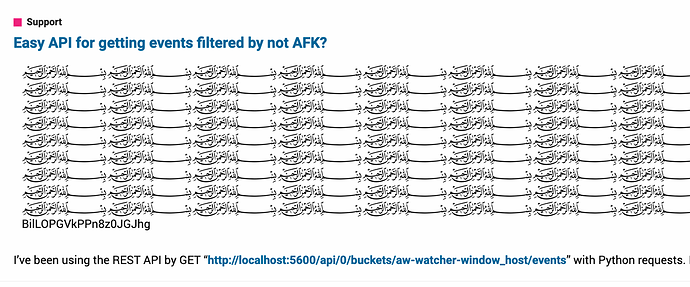I’ve been using the REST API by GET “http://localhost:5600/api/0/buckets/aw-watcher-window_host/events” with Python requests. However, this is complicated by the fact that this returns durations without regard for whether it is AFK data or not. I’ve been looking into using aw_core directly, but I’m not sure how up to date the docs are. Is Getting weekly totals still valid for example?
Is there any easy way to get all non-AFK events within a time frame directly through a REST API or with the core library?

